US Calls For Release Of Swedish-Iranian Doctor On Death Row In Iran
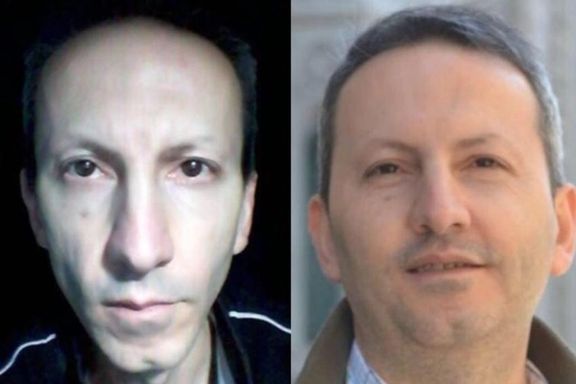
The US State Department has condemned the detention of a Swedish-Iranian doctor by the Islamic Republic and a threat to execute him, calling for his release.

The US State Department has condemned the detention of a Swedish-Iranian doctor by the Islamic Republic and a threat to execute him, calling for his release.
In response to a query by Iran International, a State Department spokesperson said, “We’re aware of the egregious case of arbitrary detention of Swedish-Iranian doctor Ahmadreza Djalali by Iranian authorities.We echo concerns from UN experts that Djalali’s case is ‘truly horrific,’ and urge his release.”
Djalali was arrested while visiting Iran on an invitation by a university in 2016 and consequently sentenced to death on unsubstantiated charges of espionage for Israel. Recently Iran threatened to carry out his execution in an apparent attempt to intimidate Sweden from convicting a former Iranian official on trial for his role in killing of thousands of political prisoners in 1988.
“Iran has a long history of unjust imprisonment of foreign nationals for use as political leverage, and continues to engage in a range of human rights abuses, which include large-scale arbitrary or unlawful detention of individuals, some of whom have faced torture and execution after unfair trials.These practices are outrageous,” The US spokesperson added.
News emerged this week that Iran has detained a Swedish tourist, in another apparent attempt to take a hostage as a bargaining chip. The state department said, “Regarding the most recent arrest, we refer you to the Swedish government.”
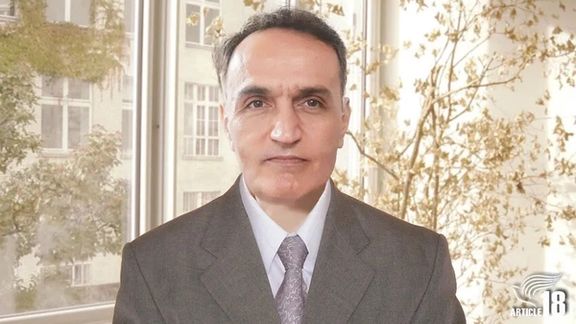
A Tehran Revolutionary Court has sentenced three Christian citizens to prison or exile on allegations of forming a "house church," for secret worship.
Article 18, a London-based organization that promotes religious freedom in Iran said on Thursday that Iranian-Armenian Christian Anooshavan Avedian was sentenced to 10 years in prison and 10 years of “deprivation of social rights” last month for teaching other Christians in his home.
Among his charges was "forming and running an illegal group to act against national security."
Two members of his house church, Abbas Soori, 45, and Maryam Mohammadi, 46 -- who are both converts to Christianity – were deprived of social rights for 10 years, received a fine of 500 million rials (about $2,000) and ten years of ban from membership in social and political groups as well as a two-year exile outside Tehran. They are also banned from leaving the country.
The three were arrested along with 15 other people, including Avedian’s family members in August 2020, when 30 Intelligence Ministry agents raided a gathering at Avedian’s home.
While Iran persecutes followers of the Baha’i religious community and rejects esoteric philosophies and cults, the constitution recognizes Christianity, Zoroastrianism and Judaism – communities that have official representatives in parliament. However, churches that are allowed to operate are ethnic Christian congregations, such as Armenian and Assyrian.
These established churches are discouraged from accepting non-ethnic members.
Muslims are barred from renouncing Islam by Sharia and the punishment could be death, although the government in Iran pursues lesser punishments.
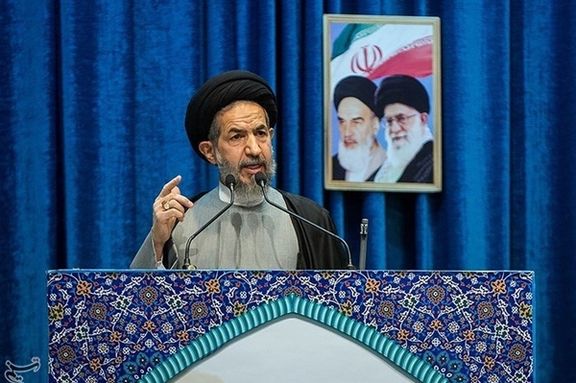
Dozens of Friday Prayer imams in Iran have urged the government to sort out economic problems, saying people are suffering under the pressure of rising prices.
Some clerics and para-military organizations have warned that the sudden rise in the price of items such as bread could lead to protests and riots.
Meanwhile, journalists in Tehran Friday reported on Twitter that the price of bread has risen nearly five-fold in Tehran despite statements by economic officials that higher flour prices would not affect traditional bread bought at neighborhood bakeries and the rise will be limited to baguettes and other western-style rolls.
The Friday Prayer Imam of Tehran, Mohammad Hassan Abutorabi Fard, said in his sermon that the government should focus its efforts on improving the nation's livelihood. He called on the government to explain the reasons of recent price increases and to make sure people understand that the government strives to compensate the higher cost of living by introducing economic reform.
On Tuesday, in Eid al-Fitr sermons, other clerics including firebrand Ahmad Khatami promised that the economic situation will improve but did not say how. Kazem Seddiqi, another prayer leader in Tehran had also expressed concern over the consequences of rising prices.
On Friday, imams in cities including Dayyer, Bojnourd, Zahedan, Shar-e Kord, Bushehr, Kermanshah, as well as many other cities warned the government that people are suffering from rising prices of bread and other everyday necessities.

In Tehran, the commander of the students Basij militia of the IRGC warned President Ebrahim Raisi on Thursday that the situation could lead to a major riot in the country. Meanwhile, prominent reformist cleric Mohammad Taqi Fazel Maybodi also warned Raisi that "if the rise in prices is not controlled Iran should wait for riots more dangerous than a revolution."
Social media users in Iran on Friday shifted from complaints about the scarcity and high price of pasta to more serious complaints and warnings about the possible impact of the rising prices of all sorts of bread in Tehran.
Somaye Naghi, an economic journalist in Tehran wrote that they sent someone from the newspaper’s office to buy traditional stone-baked bread called Sangak, but they were told that the price has increased from 60,000 rials to 250,000 rials ($1) per loaf. She pointed out that's this comes while Raisi's Minister of Agriculture had promised the day before that the price of traditional bread will not rise and it will impact "luxury western-style" rolls.
In the meantime, many Iranian journalists have interpreted Vice President for Executive Affairs Solar Mortazavi's strong defense of doing away with cheap government dollars for importing essential commodities, including flour, as a sign that the living conditions for workers, teachers, pensioners and low wage earners will dramatically deteriorate.
The government has resorted to rationing bread in some cities and the general perception is that the practice is going to be widely introduced all over the country. Journalist Ameneh Mousavi wrote on Twitter that rationing has started in Zanjan.
None of the clerics who spoke about the rising price of bread on Friday talked about the impact of sanctions apparently because they find it difficult to explain why the country is under sanctions and why Iranian officials cannot negotiate with the United States to have the sanctions lifted. They fear this will offend Supreme Leader Ali Khamenei who is responsible for major decisions, including the talks with the United States.
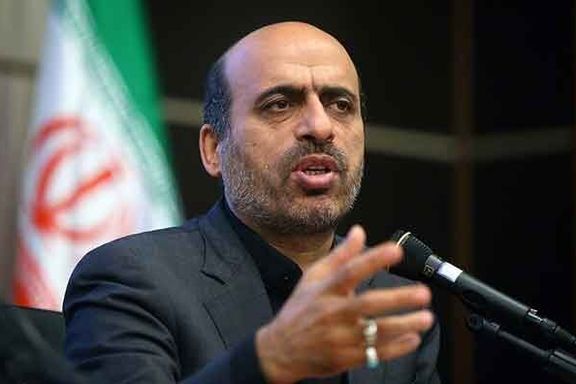
A lawmaker says proposed United States measures targeting Iran’s drones program is meant to squeeze concessions in the Vienna nuclear talks.
In an interview with the official news agency IRNA published Friday, member of parliament Mohammad-Hasan Asafari claimed the Stop Iranian Drones Act (SIDA) promoted anti-Iranian sentiment across the region as a means to pressure Tehran in talks with world powers over restoring the 2015 Iran nuclear agreement. “The United States should know that Iran's drone capability is non-negotiable and cannot be stopped,” he said.
Asafari is a former senior commander of the Revolutionary Guard, IRGC.
The House of Representatives passed draft legislation by 424 votes to two last Wednesday requiring the president to sanction persons and entities involved in Iran's drone development. The bill requires approval from the Senate and a presidential signature to become law.
Asafari claimed regional countries were aware that Iran posed no threat and called Israel and the US the main cause of instability in the Middle East.
Houthi forces in Yemen and pro-Iran Shiite militias in Iraq and Lebanon use Iranian drones as to attack, Suadi, American and Israeli targets.
Praising the drones Iran has developed – in their flight times, weapon capacity, and radar evasion – Asafari said Iran was ready to offer neighboring countries its knowledge and experience.
The lawmaker claimed Iranian drones could penetrate Israel's Iron Dome air defense system and carry out surveillance of US military in the Persian Gulf, but were not a threat to any country unless the interests of the Iranian people were at stake.
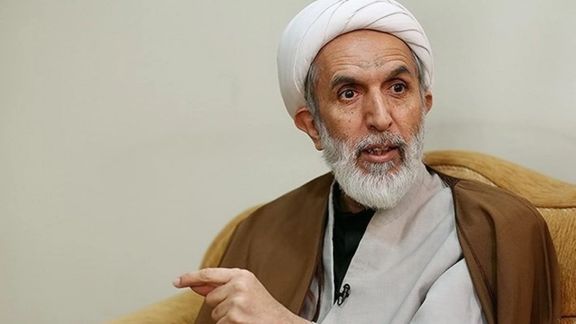
A hardliner cleric in Iran has said the parliament speaker visited Turkey in the past to help the Qods (Quds) Force, an audio received by Iran International shows.
The non-public conversation (link to audio) took place in the past two weeks after a scandal broke out about the family of the speaker, Mohammad Bagher Ghalibaf, travelling to Turkey for luxury shopping, but the exact date is not known.
The influential hardliner is cleric Mehdi Ta’eb, brother of the Revolutionary Guard’s (IRGC) Intelligence Organization chief Hossein Ta’eb. He oversees a propaganda outfit promoting the cult of Supreme Leader Ali Khamenei.
In the recording Ta’eb is speaking with an unnamed reporter who asks him why Ghalibaf visited Turkey on several occasions. First, Ta’eb denies it, but when the reporter says he accompanied him once, the cleric says Ghalibaf was assisting the Qods Force and its former commander Qasem Soleimani, who was killed in January 2020 by a US air strike in Baghdad, Iraq.
It is well-known that Soleimani was close to the former mayor of Tehran and the current parliament speaker over the years, and both had support from Khamenei, but this is the first claim that he was helping Soleimani to carry out Qods business.
Ta’eb also confirmed reports in Iranian media and social media that the disclosure about Ghalibaf family’s scandalous trip to Turkey amid rising poverty in Iran was leaked by circles close to President Ebrahim Raisi. He said that the brother of Raisi’s son-in-law engineered the leak.
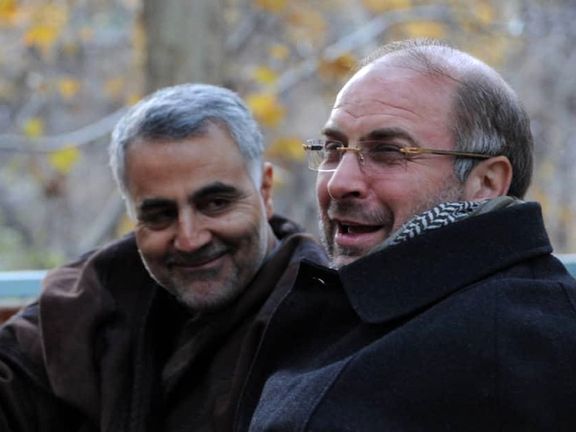
Videos emerged in April showing Ghalibaf’s wife and daughter returning from a shopping trip to Istanbul, allegedly with more than 20 pieces of luggage. The revelation coincided with rising prices that are further impoverishing millions of Iranians and it led to a political shock. Many called for his resignation from the post of parliament speaker.
The scandal got worse as a whistle blower claimed that during the trip, Ghalibaf’s wife had bought two apartments in Istanbul for $1.6 million.
A few days after the scandal broke, some Ghalibaf supporters claimed that the “an intelligence organization”, presumably the intelligence ministry controlled by Raisi was behind tracking the Ghalibaf family during the trip and publishing the videos and images.
Ta’eb in the recording says he is not certain if the intelligence ministry was involved in revealing the Ghalibaf scandal. He also said that the family first traveled to Syria and from there to Turkey.
Ta’eb also defends Ghalibaf, saying that former president Mahmoud Ahmadinejad’s supporters, the ultraconservative Paydari front, religious elements calling themselves “seekers of justice” and Iran’s “reformists” have joined forces to prevent him from getting re-elected as speaker in mid-May.
However, Ta’eb says that Khamenei had sent a hand-written note to some hardliners last year saying that Ghalibaf should be speaker of parliament.
The cleric also mentions Turkey in the recording and says that Ankara cooperates with Iran in circumventing US sanctions. He claims that despite Turkish pronouncements of acting forcefully in Syria, when Iran wants, Ankara retreats in Syria’s Idlib, where Turkish supported rebels have their last refuge.
Ta’eb also says that Turkey is dependent on oil imports and “in case of a war Iran can hit Turkish ports with [ballistic] missiles and it won’t have fuel for its tanks.”

Several human rights advocacy groups have protested the visit of a UN official to assess the impact of sanctions on Iran, calling it Tehran’s attempt to divert attention from its human rights violations.
Eleven rights groups issued a statement on Friday, on the eve of the visit by Alena Douhan, the UN Special Rapporteur on the negative impact of the unilateral coercive measures on the enjoyment of human rights, slated from May 7 to 18.
They denounced the Iranian government's instrumentalization of the system of UN human rights monitors in an attempt to deflect attention from its well-documented record of human rights violations, and also criticized the Islamic Republic for not allowing similar trips to UN Special Rapporteurs focusing on human rights in Iran since 1992.
They pointed out that the mandate of this rapporteur is unique as it is meant primarily – if not exclusively – to assess the responsibility of sanction imposing states for rights violations.
Describing the visit as “a banal ploy to divert blame for Iran's current human rights situation”, they said that by inviting only the expert whose mandate is to look at external actors' liability for rights violations in the country, “Iranian authorities exploit this visit in an inconspicuous attempt to blunt scrutiny of its record of non-cooperation with the UN human rights system”.
The role of this Special Rapporteur was created by a 2014 resolution at the UN Human Rights Council introduced by Iran on behalf of the Non-Aligned Movement.
Iranian Nobel Peace Prize Laureate Shirin Ebadi wrote to High Commissioner for Human Rights Michelle Bachelet in April and called for the postponement of the visit until Iran lets in the UN Special Rapporteur on Human Rights.